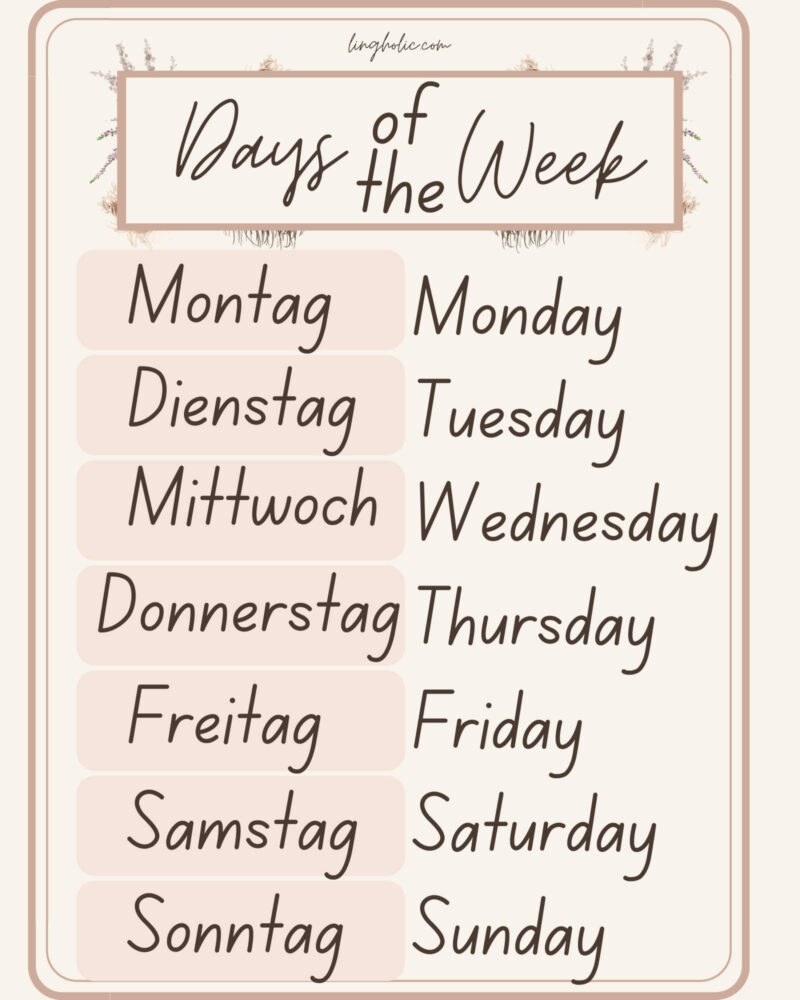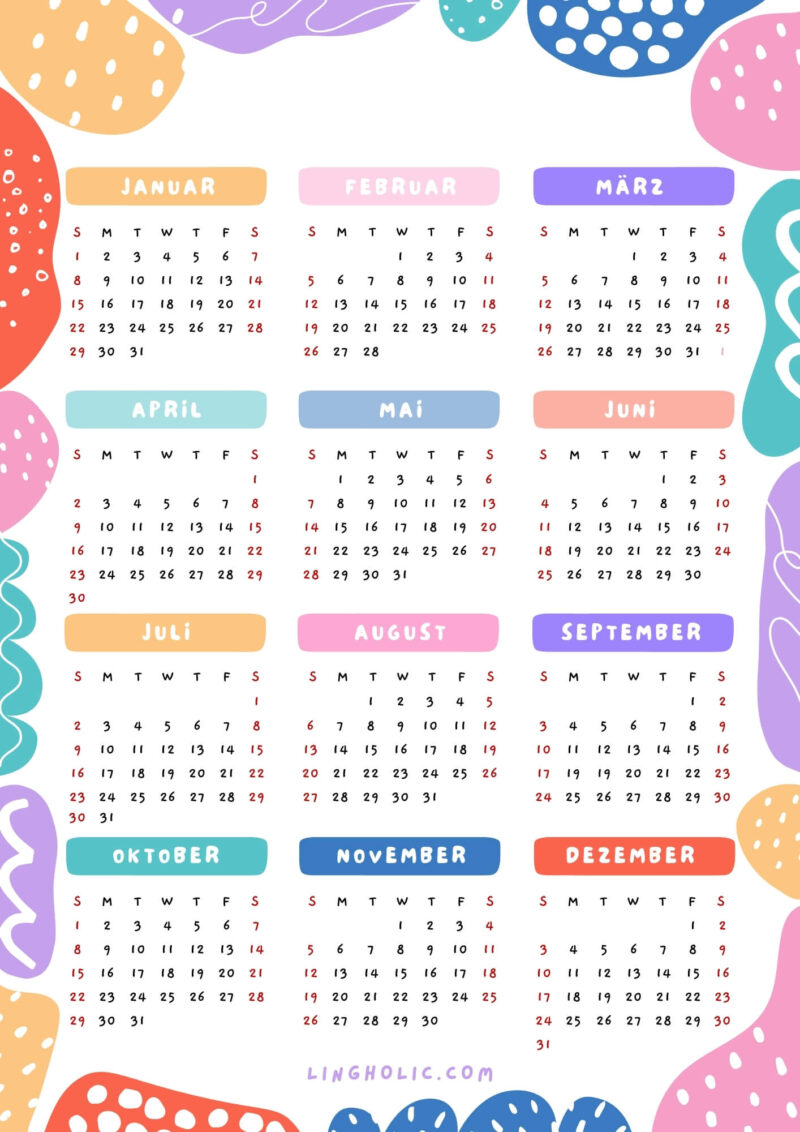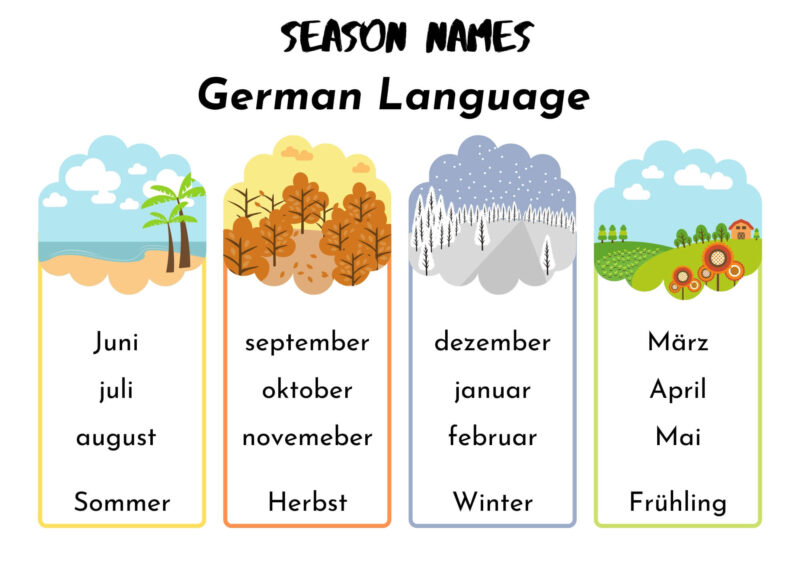Understanding time expressions is an important part of learning any new language. In this guide, we will explore key vocabulary and grammar structures for discussing days, months, seasons, and other time-related concepts in German.
Days of the Week

- Montag (Monday)
- Dienstag (Tuesday)
- Mittwoch (Wednesday)
- Donnerstag (Thursday)
- Freitag (Friday)
- Samstag or Sonnabend (Saturday; “Sonnabend” is used in northern and eastern Germany)
- Sonntag (Sunday)
The days of the week in German are masculine nouns prefixed by “der”.
Months of the Year

- Januar (January)
- Februar (February)
- März (March)
- April (April)
- Mai (May)
- Juni (June)
- Juli (July)
- August (August)
- September (September)
- Oktober (October)
- November (November)
- Dezember (December)
The months are also masculine nouns, typically used with “der”.
Seasons

- Frühling (Spring): März, April, Mai
- Sommer (Summer): Juni, Juli, August
- Herbst (Autumn): September, Oktober, November
- Winter (Winter): Dezember, Januar, Februar
Season names are masculine and capitalized. “Der” is used with each season when forming sentences, for example, “im Sommer” (in summer).
Grammar
Expressing time involves specific grammatical structures. The preposition “im” plays a crucial role when discussing months and seasons. This preposition combines “in” (in) and “dem” (the), reflecting the dative case used for time periods.
For example:
- Im Januar means “in January.”
- Im Winter translates to “in winter.”
This structure is necessary because German assigns a masculine article to each month and season, treating these time periods as masculine nouns in the dative case:
- Der Januar becomes im Januar.
- Der Winter becomes im Winter.
This use of the dative case highlights an action or event occurring within a specific time frame. For example:
- Im Sommer gehe ich gern schwimmen. (I like to go swimming in the summer.)
- Wir reisen im März nach Deutschland. (We are traveling to Germany in March.)
As you can see, learning more about the rules used in grammar is crucial for further development. These rules are what makes German so different from English in the first place. Just learning plain words can be a good start, but even more important is to learn how to use them in a sentence.
I’m John Guerrero, with a background in German (Major) and Greek (Minor), leveraging over nine years of translation experience. My academic and professional journey has earned me deep linguistic insights and cultural nuances. I’m very passionate about bridging languages, and always look to deliver content that inspires and informs.
Related Posts:
- How to Pronounce Days, Months, and Seasons in Spanish?
- Top 10 Books for Learning German Language - Improve…
- Learn to Count in German - Tips and Tricks
- Greetings and Goodbyes to Remember in German Language
- How to Have a British Accent? Practical Advice for…
- Learn to Count in Spanish - Tips and Tricks on How…

